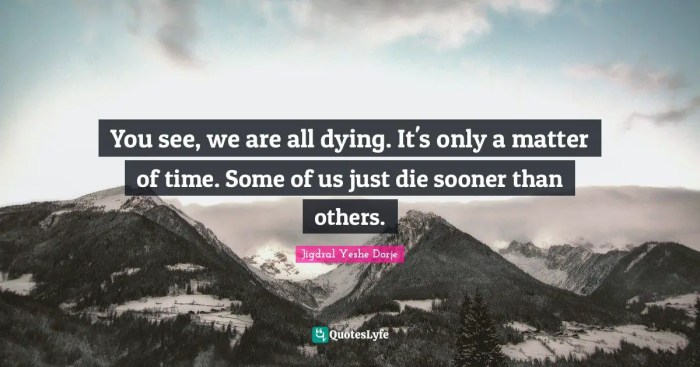You will see. Verás. Veremos. Veré. Verán.
These phrases, seemingly simple on the surface, hold a wealth of linguistic, cultural, and historical significance. Embark on a captivating journey as we delve into the intricacies of these expressions, unraveling their nuances, exploring their usage across languages and cultures, and examining their profound impact on our understanding of the world.
From the halls of literature to the canvases of art and the melodies of music, these phrases have left an indelible mark on human expression. Join us as we uncover the stories behind these words, tracing their evolution and examining their enduring relevance in shaping cultural perspectives and beliefs.
Language and Usage

The phrases “you will see,” “verás,” “veremos,” “veré,” and “verán” are all used to express future events in different languages and cultures. In English, “you will see” is typically used to make a prediction or to state a fact that is likely to happen in the future.
In Spanish, “verás” is used in a similar way, but it can also be used to express a warning or a threat. “Veremos” is used to express a future event that is uncertain or that depends on certain conditions. “Veré” is used to express a future event that the speaker is personally responsible for.
“Verán” is used to express a future event that will affect a group of people.
Examples
- English:You will see that the sun will rise in the east tomorrow.
- Spanish:Verás que el sol saldrá por el este mañana.
- English:We will see what happens when we get there.
- Spanish:Veremos qué pasa cuando lleguemos allí.
- English:I will see to it that the work is done.
- Spanish:Veré que el trabajo se haga.
- English:They will see that the new policy is working.
- Spanish:Verán que la nueva política está funcionando.
Nuances and Subtleties, You will see. verás. veremos. veré. verán.
The different phrases can also have different nuances and subtleties. For example, “you will see” can be used to express a strong conviction, while “verás” can be used to express a more tentative prediction. “Veremos” can be used to express a lack of certainty, while “veré” can be used to express a sense of responsibility.
“Verán” can be used to express a sense of anticipation or excitement.
FAQ Guide: You Will See. Verás. Veremos. Veré. Verán.
What is the difference between “you will see” and “verás”?
While both phrases share a similar meaning, “you will see” is used in English, while “verás” is the Spanish translation. The latter carries a more personal and direct tone, often used in informal conversations or when addressing someone familiar.
How are these phrases used in different cultures?
The usage of these phrases varies across cultures. In some cultures, “you will see” may be perceived as a statement of fact or a prediction, while in others, it might convey a sense of promise or anticipation.
What is the grammatical structure of “veremos”?
The Spanish phrase “veremos” is composed of the verb “ver” (to see) in the first-person plural future tense, indicating that the speaker and others will see something in the future.

